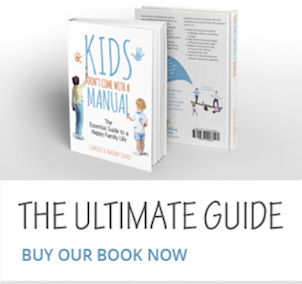A recent survey (carried out on behalf of Family and Friends Railcard) found that by the beginning of August, 50% of parents have reached ‘breaking point’ as a result of trying to keep their children entertained during the summer holidays. Most parents plan activities for the first couple of weeks of the summer holidays, but by the beginning of August, many find that they start to run out of ideas of ways to keep their children occupied.
One of the most common complaints that parents will hear during this time is ‘Mum, I’m bored!’ or ‘Dad, there’s nothing to do!’. Upon hearing this, many parents immediately jump in and try to provide their children with something to do, whether it be some form of technological entertainment or simply a board game or colouring book. Although it’s a natural thing to want to help our children find activities that can entertain them, protecting our child from boredom may prove to only be effective in the short-term, as in the long term, you aren’t doing yourself, or more importantly your child, any favours.
Studies show that unstructured time is actually essential to a child’s development, as it encourages children to explore their imagination in order to find more creative ways to spend their time. Imagination, creativity and play are all vital components of a healthy and happy childhood, and allowing our children to first experience, and then learn to manage, boredom encourages them to explore their ‘inner’ world as well as the world around them.
Ensuring that our children learn this essential life-skill is even more important in an age when digital media dominates so much of people’s lives. Children today are so used to having all manner of entertainment literally at their fingertips that they are even less equipped to deal with boredom than the children of previous generations. Sadly, this means that many children are robbed of the opportunity to learn to look inside themselves for direction, and this can affect their ability to make decisions and prevent them from learning how to become independent and autonomous adults.
As parents, we must also look at how we spend our own free time. If we can’t sit still for more than a few minutes without reaching for our smartphones, then the likelihood is that our kids will think that this is normal and acceptable behaviour and will do exactly the same.
So when your child complains that they are bored, firstly you must make sure that they understand that this problem is their responsibility to solve. If you feel they need a bit of encouragement, you can help by brainstorming with them about how they could spend their time by using our tool Generating Solutions.
Here is how it works:
- Remember that your job is to ask questions and make suggestions, but not try to provide the answers!
- Start by asking them: “If you feel bored, what can you do about it?”. They are quite likely to answer “I don’t know”. However, if they answer or do otherwise, then they’re ready to start finding solutions for themselves.
- Then ask: “Would you like to know what other kids have tried?” or “Do you know what I used to do when I was a kid and there were no iPads around?”
- They will usually answer “Yes”, and you can then give them a series of alternatives (this is where you need to be creative!). For example, “Some children go outside and start looking for plants or insects that they can collect”, or “When it’s a sunny day like this, a lot of children enjoy playing games like ‘Hide & Seek’ in the garden.” Alternatively, another suggestion could be, “When I was your age, my friends and I used to go on ‘Scavenger Hunts’ or organise ‘Treasure Hunts’ for each other and that was always a lot of fun.”
- After you suggest each alternative, ask your child “Do you think that would work for you?” This last question will help them to feel empowered because it encourages them to think for themselves and they will want to ‘carry this through’.
By using the above tool and asking your child questions you are encouraging them to solve the problem for themselves, so next time they feel bored they’ll know exactly how to deal with it. For the use of the Generating Solutions tool in other circumstances, you can find more in our book Kids Don’t Come With a Manual.













































